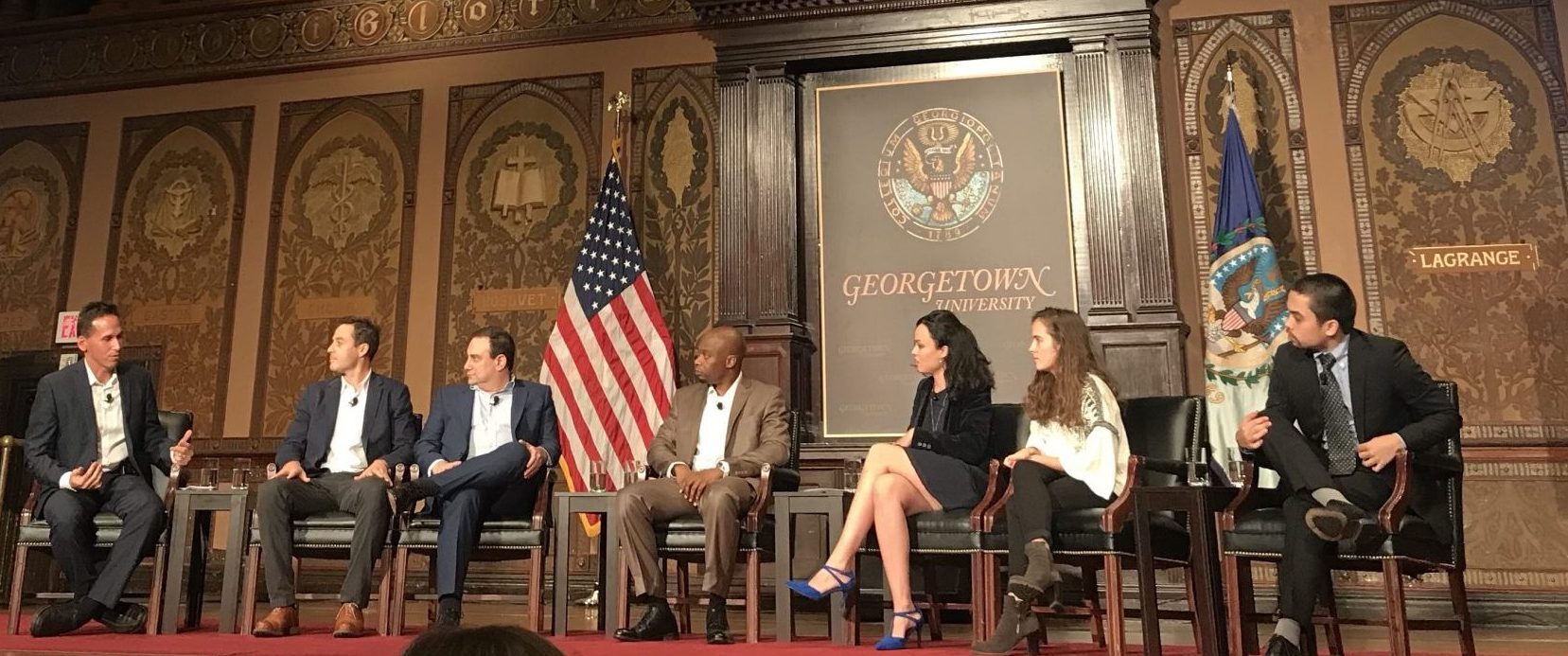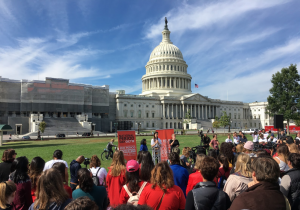Valentino Dixon was the center of a panel hosted by the Prisons and Justice Initiative and the Lecture Fund celebrating his exoneration from prison and highlighting the role that Georgetown students played in his release.
The Nov. 1 event was moderated by Marc Howard and Martin Tankleff, who co-taught the “Making an Exoneree” class and helped work toward Dixon’s exoneration. Also on the panel was Mark Adler, whose article about Dixon in Golf Digest sparked much of the recognition of the injustices of his case in the first place. Lastly, the panel included the three former Georgetown students from Howard and Tankleff’s class who were instrumental in achieving Dixon’s release: Ellie Goonetillake (COL ’18), Julie Fragonas, and Naoya Johnson.
Sentenced in 1992, Dixon spent the 27 years in Attica Correctional Facility for a murder he did not commit. To keep himself occupied, Dixon dedicated much of his time to his art – specifically, golf art – eventually becoming known as the “Artist of Attica.”
“Art is what kept me strong. It invigorated my spirit. And see, prison is a place that’s designed to break your soul, and your spirit,” Dixon said.
Adler, the editorial director of Golf Digest, played a significant role in generating attention for Dixon’s case and the injustice it demonstrated via his column “Golf Saved My Life.”
“I love golf, I love art, but I have always hated golf art,” Adler said. For Adler, Valentino’s art was different. “Valentino’s work was just surreal. It’s got this sort of sublime quality to it. Obviously you can’t look at it without thinking about the place and the situation in which it was made.”
The inspiration of Dixon’s art, as well as his character, was a common theme throughout the discussion. Despite the gravity of his experiences, the discussion was filled with hope and humor, and the camaraderie between all on stage was evident.
Questioned about what in Valentino’s case invoked her interest and passion, Fragonas said “what I wanted was to fight and work with someone that I would be inspired by.”
“I just knew that it was something great about this place,” Valentino said of his confidence in Georgetown. When asked if he had ever had any doubts, or any naysayers, about the involvement of Georgetown students, Dixon said, “whenever you mentioned Georgetown, I haven’t met one person who could even think about saying ‘so what?’”
Goonetillake agreed. “It seems a particular achievement for students, but I think it almost happened because we were students.”
Many of Dixon’s remarks circled back to the unfairness within the justice system, calling for reform efforts.
“My role is just to educate people, people that wouldn’t necessarily be involved in the criminal justice system,” Dixon said. “Because unless you have a family member or a close relative or somebody that you’re close with have legal problems or end up in a penitentiary you’ll never really know because it won’t hit your heart.”
The primary message of the panel culminated in one of Howard’s final comments: “There are so many extraordinary people in prison. This is the tragedy of mass incarceration, it’s that we have people with talent, with intelligence, with hopes, with dreams, with incredible things they could contribute to our society, yet they’re locked away and separated from us, and that’s a tragedy.”







